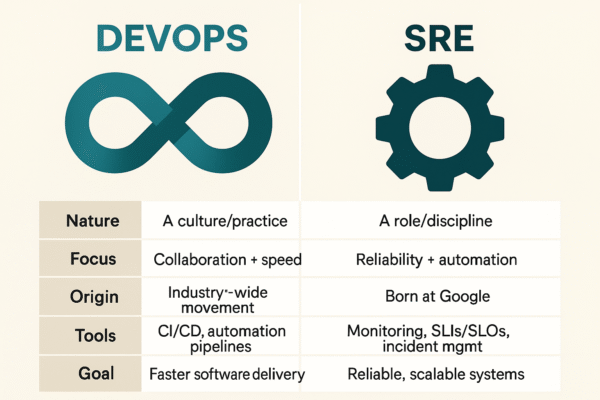The field of software development methodologies is constantly evolving, and two terms that have garnered significant attention are DevOps and DevSecOps. While these terms may appear interchangeable, they actually represent distinct approaches to software development and operations. In this article, we will delve into the realms of DevOps and DevSecOps, exploring their unique differences, the benefits they offer, and why it is crucial for modern development teams to understand these concepts.
The DevOps and DevSecOps Landscape: A Brief Overview
DevOps is a methodology that was developed to address the separation between development and IT operations teams. Its main goal is to create collaboration, communication, and automation between these two functions throughout the software development lifecycle. By streamlining development, deployment, and monitoring processes, DevOps enables faster and more reliable software delivery.
DevSecOps is an extension of the DevOps philosophy that places a strong focus on security. It incorporates security practices and considerations throughout each stage of the development process. Unlike traditional security approaches, which often treated security as an afterthought, DevSecOps proactively addresses potential vulnerabilities early in the development cycle.

Intro
In the ever-evolving landscape of software development, it is essential for teams to grasp the distinctions between DevOps and DevSecOps. As the digital realm grows more intricate and potential threats to application security mount, organizations must embrace steadfast practices that not only prioritize efficiency and velocity but also shield their applications against potential vulnerabilities.
Exploring the Key Differences: DevOps vs. DevSecOps
Now, let’s explore the fundamental distinctions between DevOps and DevSecOps, unraveling their methodologies, advantages, and contributions to the software development lifecycle.
1. Methodology and Philosophy
DevOps is all about fostering collaboration between development and IT operations teams. The main goal is to automate processes, allowing for faster deployment and shorter time-to-market. It also stresses the importance of continuous integration, continuous delivery (CI/CD), and quick iteration.
DevSecOps, an extension of DevOps, incorporates security into the software delivery process. It takes the focus from simply delivering secure software to delivering security as part of the code itself. By integrating security practices throughout the development pipeline, DevSecOps promotes a culture where everyone is responsible for ensuring security.
2. Integration of Security
DevOps teams often prioritize speed and efficiency, sometimes sacrificing security in the process. Security measures are often added as an afterthought, which can leave vulnerabilities. In contrast, DevSecOps integrates security checks and practices right from the start of development. This proactive approach significantly reduces the chances of overlooking security flaws.
3. Automation and Pipeline
Automation plays a crucial role in both DevOps and DevSecOps, as it helps streamline processes and ensure efficiency. In DevOps, automation is used to automate the deployment pipeline, allowing for frequent and consistent release cycles. Similarly, in DevSecOps, automation is extended to include security checks, vulnerability assessments, and compliance audits. This ensures that security measures are consistently applied at every stage of the development process.
DevOps Engineer Roadmap:
➡️ Learn a Programming Language: Start by mastering a programming language such as Python, Go, or others. This will empower you to write efficient automation scripts for various tasks.
➡️ Master Operating System and CLI: Gain expertise in managing and… pic.twitter.com/0oGM7vFPEE
— Nelson Djalo | Amigoscode (@AmigosCode) August 9, 2023
4. Roles and Responsibilities
In a traditional DevOps setup, developers and operations teams work closely together to manage the entire development lifecycle. However, in DevSecOps, security experts are also actively included in the process. Developers, operations teams, and security professionals collaborate to ensure that security concerns are effectively addressed at every phase of development.
5. Vulnerability Management
DevOps teams may not have a complete understanding of potential security vulnerabilities, which increases the risk of security breaches. By adopting DevSecOps practices, vulnerability management becomes an integrated part of the development process. This involves real-time monitoring, dynamic application security testing, and interactive security assessments to promptly identify and address any vulnerabilities that may arise.
6. Transition from DevOps to DevSecOps
Moving from DevOps to DevSecOps goes beyond simply incorporating security tools into an existing pipeline. It necessitates a change in mindset, culture, and practices. Teams need to recognize the importance of security in today’s threat landscape and be willing to dedicate time and effort to implementing robust security measures.
7. Agile and Iteration
Both DevOps and DevSecOps align with the principles of agile development, emphasizing iterative processes and ongoing improvement. However, DevSecOps specifically prioritizes continuous security enhancements, ensuring that security practices evolve together with the application.
8. Benefits of DevOps and DevSecOps
While DevOps speeds up the development and delivery process, DevSecOps offers an additional advantage: improved security. By integrating security measures throughout the entire development lifecycle, DevSecOps reduces the likelihood of data breaches, enhances customer trust, and mitigates the potential financial consequences of security incidents.
9. Challenges in Implementing DevSecOps
While implementing DevSecOps can be challenging, it comes with numerous benefits. Organizations may face obstacles such as the requirement for specialized security knowledge, seamless integration of security tools, and finding the right balance between speed and security. However, those who successfully overcome these challenges enjoy a more secure and efficient development pipeline.
10. Cultural Shift and Collaboration
For successful implementation, both DevOps and DevSecOps demand a cultural transformation. It involves fostering effective collaboration between developers, operations teams, and security professionals to break down barriers and create a shared sense of responsibility for ensuring the quality and security of the end product.
In Conclusion
In the rapidly advancing world of software development, it’s crucial to adopt methodologies that prioritize both speed and security. Two prominent approaches in this realm are DevOps and DevSecOps. While DevOps focuses on streamlining development and operations, DevSecOps takes it a step further by integrating security measures at every stage of the process. By understanding the distinctions between these methodologies and embracing the principles of DevSecOps, development teams can deliver software that not only meets the expectations of modern consumers but also remains robust in the face of evolving threats.
Key Takeaways
DevOps is a methodology that focuses on fostering collaboration, utilizing automation, and facilitating rapid software delivery. It aims to bridge the gap between development and operations teams, ensuring smootherDevSecOps goes beyond DevOps by incorporating security practices throughout the development pipeline. This approach fosters a culture where everyone takes ownership of security and understands its importance in every stage of the development process. By incorporating security practices throughout the development lifecycle, DevSecOps aims to proactively address vulnerabilities and minimize potential security concerns. Moving from a DevOps to a DevSecOps approach necessitates a change in culture and the adoption of a comprehensive security integration strategy. Both methodologies follow agile principles and embrace iterative development. However, DevSecOps places a greater emphasis on continuous security enhancements. By adopting DevSecOps practices, organizations can achieve a range of benefits. These include heightened security measures, minimized risks of data breaches, increased customer trust, and a more streamlined development process.



